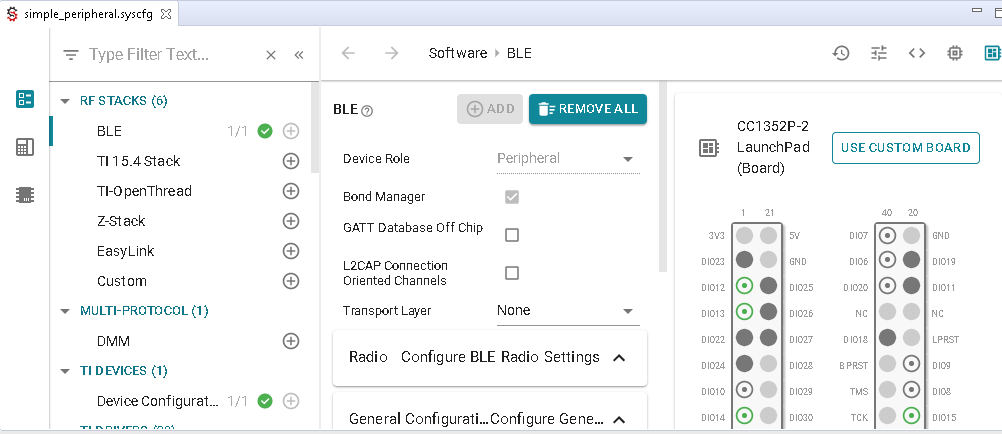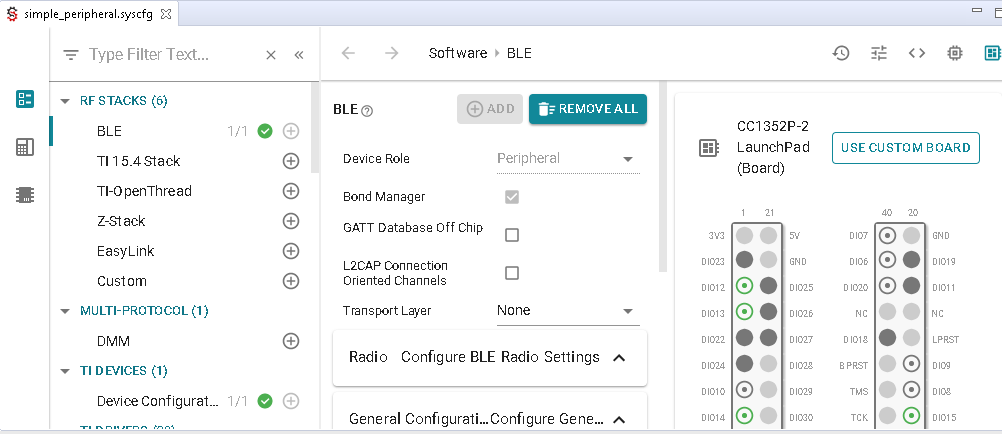Other Parts Discussed in Thread: SYSCONFIG
Tool/software: Code Composer Studio
Hi All,
We are working on CC1352P Rev E based silicon product.
We uploaded a sample project from ble5stack. Here in the default SysCfg board file for IO configuration it is not allowing to re assign. For ex: BTN1 is locked to IOID_15, if I want to use IOID_15 for other purpose then I have to select "Use Hardware"
To overcome this I created the Custom Board in the SysCfg UI. But now it is showing an error as below (rfDriverCallbackCustom)
Kindly help me in fixing this.
Thanks & Regards,
Yasar Arafath



